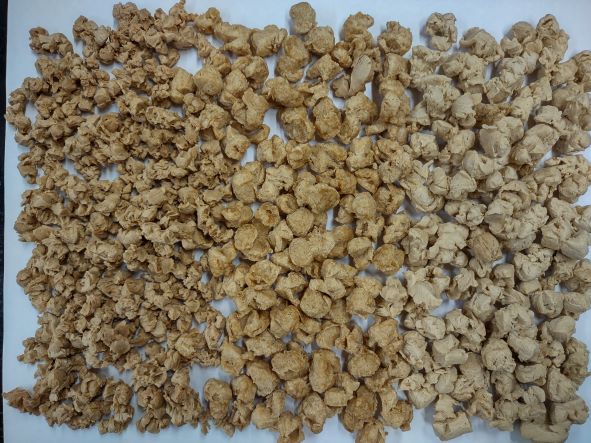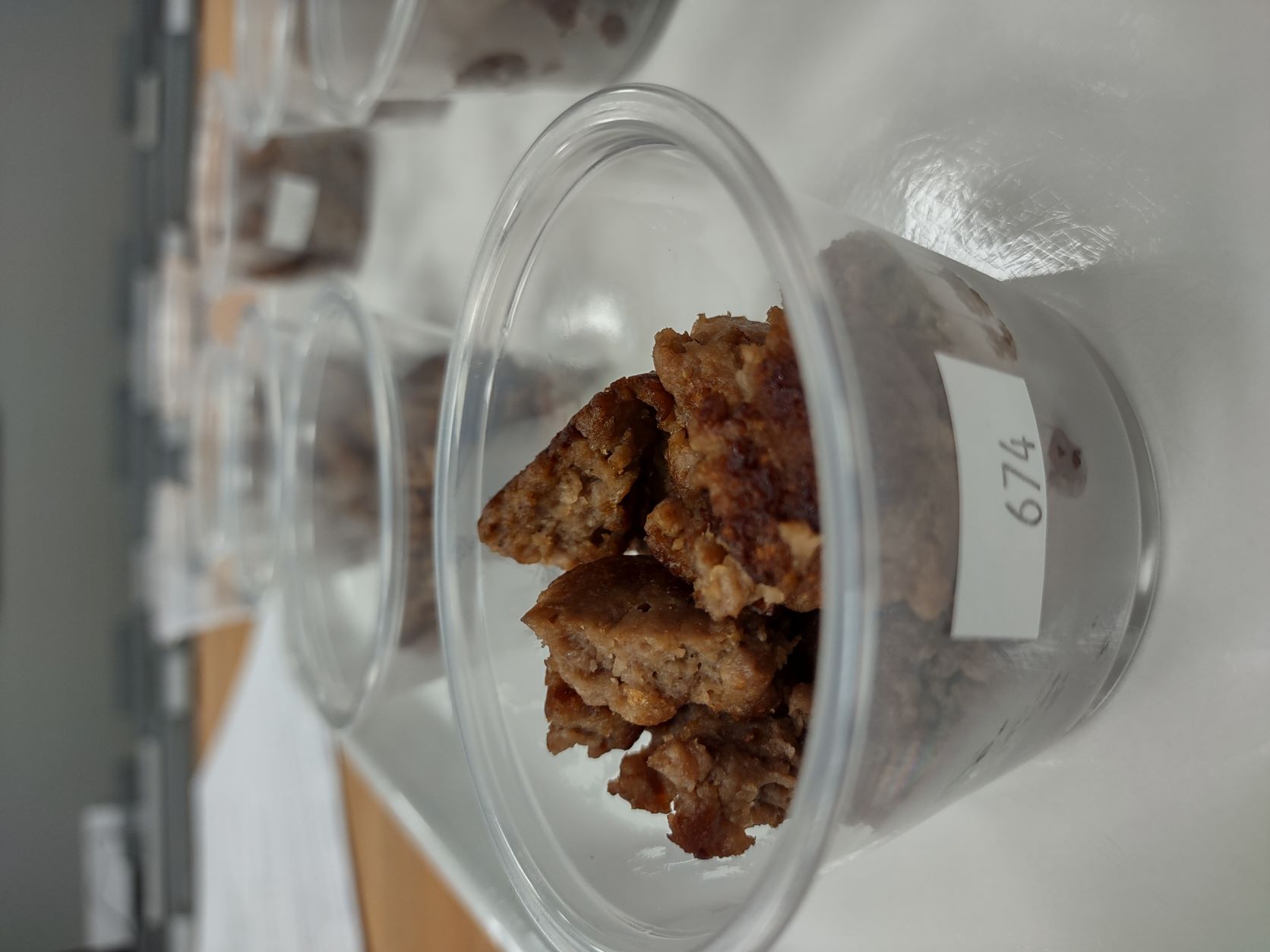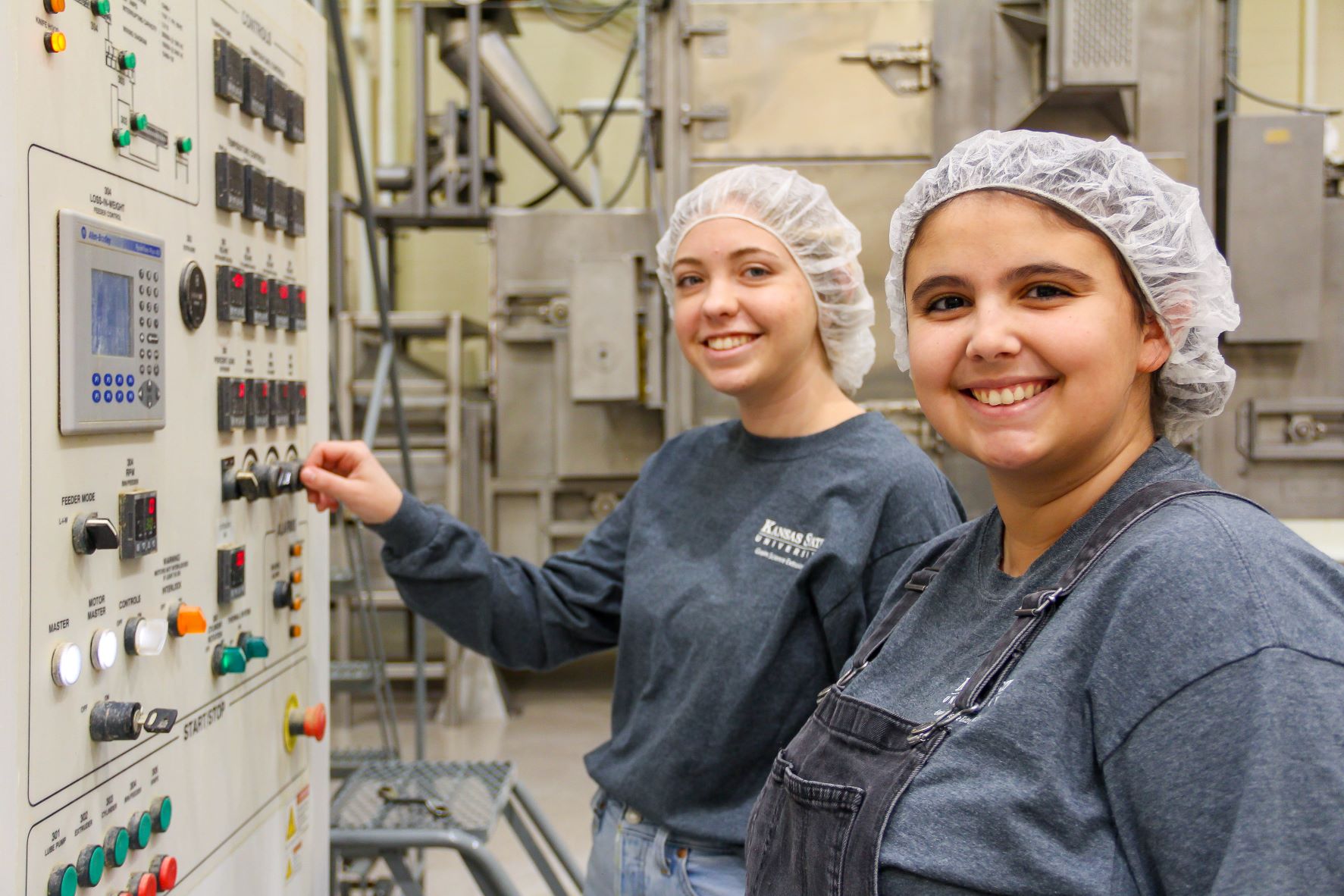Progress for plant-based meat alternatives
While plant-based meat alternatives appear to be more common in stores and restaurants, there are still challenges to overcome when it comes to quality and consumer acceptance. Jenna Flory, master’s student at Kansas State University, is tackling some of those challenges.
 Flory began her academic career at K-State in the Department of Biological and Agricultural Engineering and earned a bachelor’s degree in biological systems engineering.
Flory began her academic career at K-State in the Department of Biological and Agricultural Engineering and earned a bachelor’s degree in biological systems engineering.
During her time as an undergraduate, she took a product development class that excited her about jobs in the food industry. The class was taught by Sajid Alavi, professor of grain science and industry, who was Flory’s advisor while she completed her Master of Science in grain science degree at K-State.
Flory’s research is focused on plant-based meat alternatives and focuses on how the texture of a product is affected by the functionality of various proteins. She worked alongside Alavi on a recent Global Food Systems Seed Grant project titled, “Plant-based meat for sustainable food systems.”
Through her graduate assistantship she has had the opportunity to work with clients in the grain science pilot scale facility. Flory has participated in some unique projects such as creating exotic bird food and a feed for hedgehogs.
“It’s been really exciting to work on a bunch of different products,” Flory said. “I’ve been exposed to cereals, snacks, plant-based meats and pet food.”

Flory’s thesis involves the swelling and gelling properties of plant proteins in plant-based meats. She has found that swelling properties can be characterized as either cold or heat swelling.
“The cold swelling will lead to a soft, spongy product, while heat swelling will lead to a firmer, chewier product,” Flory said.
This knowledge greatly influences texture and would allow companies to create plant-based meats with specific textures to mimic that of traditional meat products.

Flory said there are many benefits of plant-based meat. They add value to crops and plant proteins such as soybeans and wheat, creating another source of revenue for Kansas farmers. There are also health benefits — they provide another source of protein and in general have lower cholesterol and saturated fats.
Drawbacks do exist, however. Plant-based meats tend to contain a lot of sodium and are considered by some as highly processed. Price is also an issue, as these products are typically more expensive at grocery stores and restaurants.
Consumer acceptance is a major challenge. Persuading people to branch out and try the products can be a challenge and texture can be a hindrance to the appeal of plant-based meat.
Flory believes improved marketing could increase consumer acceptance.
“I think in the future marketing needs to switch to making plant-based meat its own category, rather than comparing it directly with meat,” Flory said. “Some of these products are really good — they might not taste like a burger, but they taste great and would be great on a bun in the same form as a burger.”
 After graduating with her master's degree in May 2023, Flory moved to Springdale, Arkansas to begin working for Tyson as a Research and Development Process Development Engineer.
After graduating with her master's degree in May 2023, Flory moved to Springdale, Arkansas to begin working for Tyson as a Research and Development Process Development Engineer.
Learn more about Flory and Alavi’s research by clicking the link in Alavi’s name under the FY 2022 drop down menu.